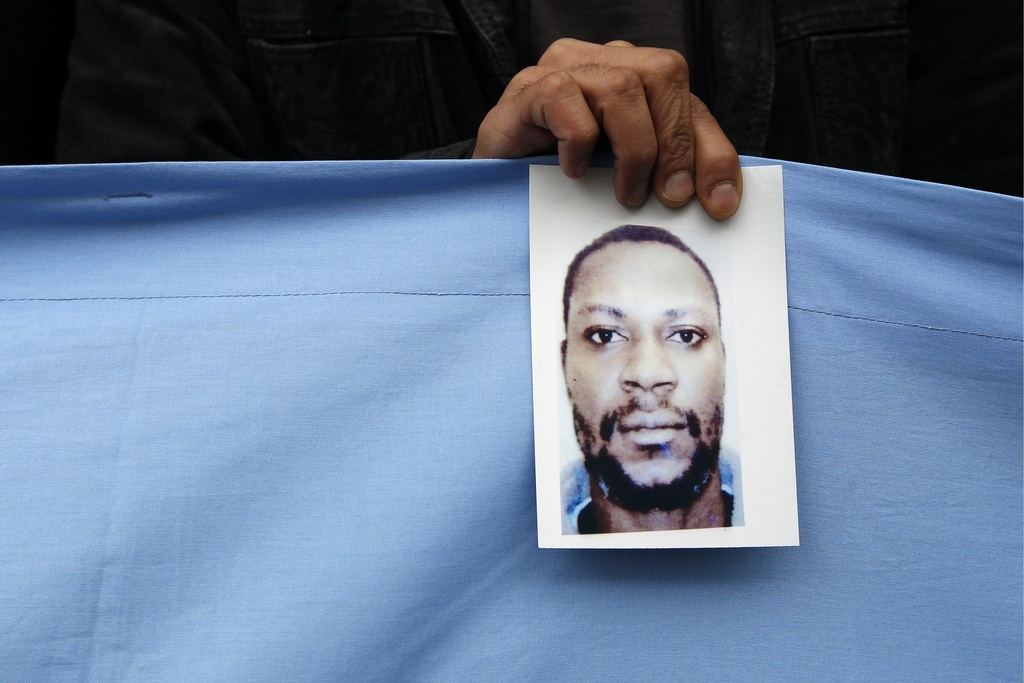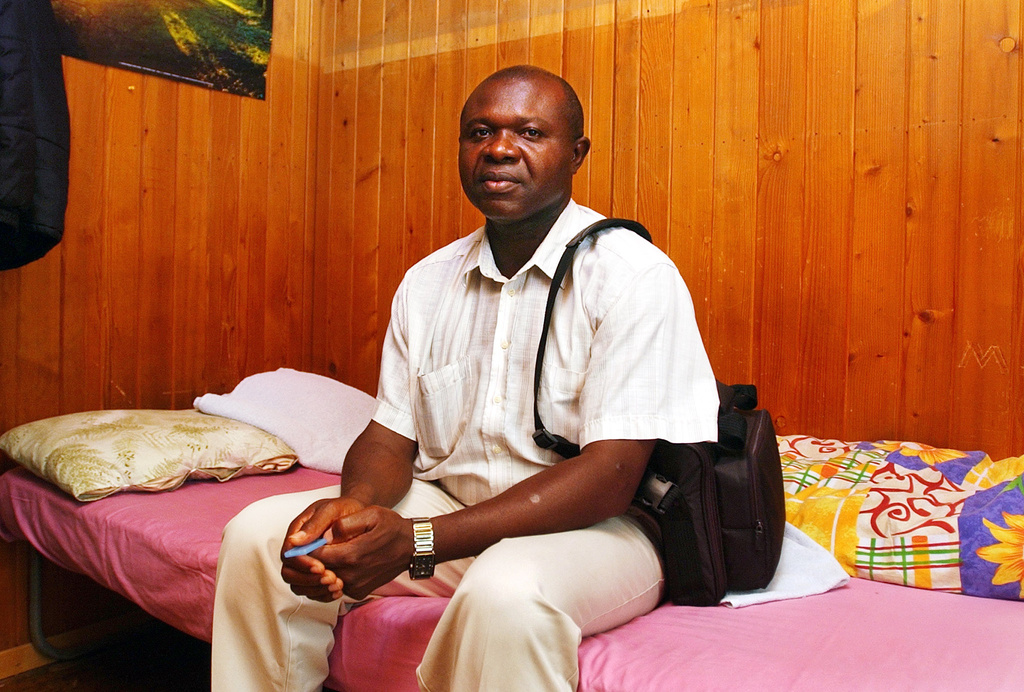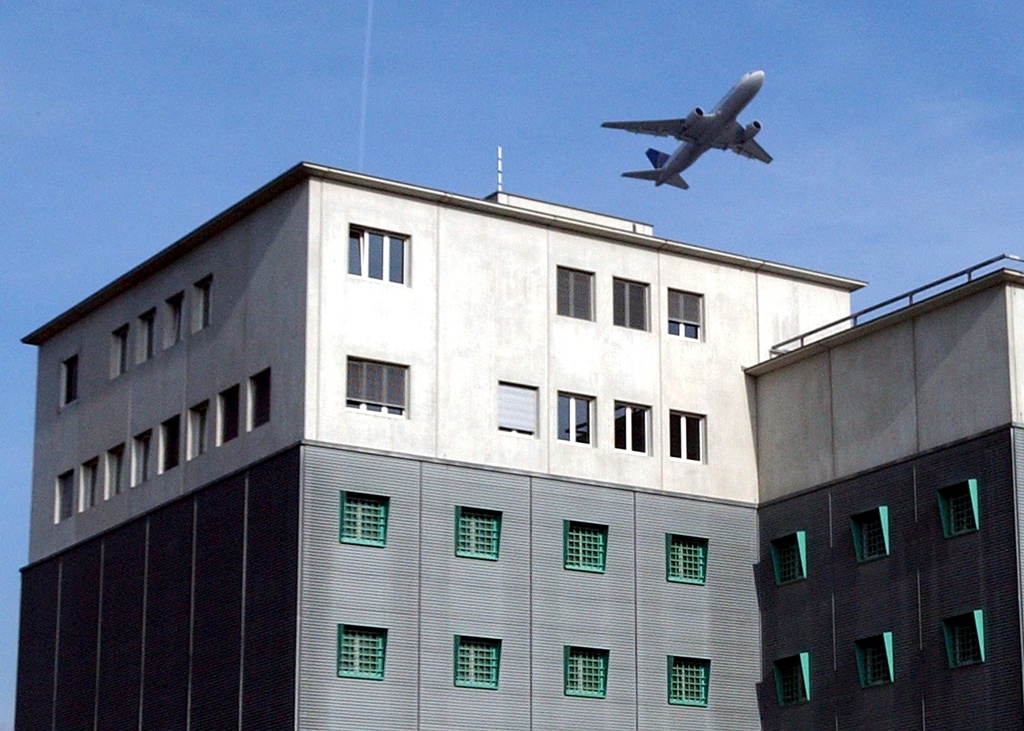Migration head slammed for Nigerian remarks

Criticism is mounting against a top migration official over “divisive” remarks that Nigerian asylum seekers have criminal intentions in entering Switzerland.
On Monday the Platform for Reflection on Anti-Black Racism called for Alard du Bois-Reymond, director of the Federal Migration Office, to resign over his comments that Nigerian asylum seekers “were not coming to seek asylum but to do illegal business”.
Many drifted into petty crime or dealing drugs, he said. Amnesty International in turn said the comments were “unacceptable”.
Du Bois-Reymond took to the airwaves to defend his stance. Speaking on public radio on Monday he said he was backed up by the facts: 99.5 per cent of Nigerian asylum requests last year had failed. Just one Nigerian was granted Swiss asylum, out of around 1,800 applications.
“Humanitarian action only works if there is a strict application of the rules,” he said, adding that he was in favour of providing aid on the ground in needy countries.
But Kanyana Mutombo, director of Geneva’s Africa education centre, says the migration head’s comments only end up branding the Nigerian community as a whole and are symptomatic of a trend in Switzerland to blame crime on foreigners.
“Often Swiss authorities, and those Swiss in general who do not know about Africa and Africans, tend to be unaware of the resonance that certain stigmatisations can have” he told swissinfo.ch.
“For us it reawakens other stigmatisations. The history of relations between white and blacks has always been marked by the criminalisation of blacks. For us it is like a continuation of that historic criminalisation where we are always wrapped up in that image of being criminal because of the colour of our skin.”
“Sullying a population”
Du Bois-Reymond first made the remarks earlier this month when the government began looking at ways to speed up the deportation of rejected asylum seekers, with those from Nigeria at the top of the list.
Adding fuel to the row was the death in March of a Nigerian asylum seeker being deported from Switzerland. The man, a convicted drug dealer, had refused to leave the country and was on hunger strike. The cause of his death on the tarmac at Zurich airport on March 18 is under investigation.
Special deportation flights, like the one he was boarding, were temporarily halted as a result but the Migration Office has since called for them to reintroduced before the inquiry into the death is concluded – a move Amnesty International Switzerland and the Swiss migrants pressure group Solidarité sans frontières have subsequently denounced.
Amnesty International Switzerland says it wants independent observers to be on hand for deportation flights and has also criticised the migration head for his recent comments.
“It is unacceptable that the director of a federal office, especially one in charge of integration matters, feels able to discredit the entire Nigerian community, simply by reason of its nationality,” said spokesman Daniel Bolomey.
Du Bois-Reymond’s handling of the whole affair was reason for him to step down, the Platform for Reflection on Anti-Black Racism said on Monday.
“One cannot put Nigerians all together in one group. Because of a small minority we are sullying an entire population,” André Loembe, vice-president of the organisation told swissinfo.ch.
“We have been shocked at the language used by a person in authority. His language is provocative and seeks to divide. When it comes from a person in charge, it is unacceptable.”
Diplomatic action
The organisation has also called for an independent investigation into the asylum seeker’s death. Loembe points to a joint agreement on deportation with Nigeria, which states deportations must be carried out with respect for human dignity and according to international conventions.
“People cannot accept that a young person like that can die in appalling conditions. Everyone has hope that the inquiries underway will prove who is responsible. We are in a state of law and no one is above the law,” he said.
Nigerians within Switzerland were also contacting their embassies to pressure the embassy to take action.
Kanyana Mutombo says African governments and their representatives on Swiss soil are typically slow to respond to human rights abuses against Africans within Switzerland.
“On many occasions we have alerted them over the lack of respect for human rights that mainly affects people of African origin, but they do not react. Even when it is diplomats who are badly treated by the police there have not been big reactions. They leave it.”
He noted that media coverage of the situation had forced the Nigerian embassy to start taking steps. In his view, Nigeria should have suspended its joint deportation agreement with Switzerland following last month’s death.
“We will see if Nigeria will denounce this agreement or if it will let it lie. Will other African embassies to do the same in other cases?
“Until now these embassies have been barely active in this field. So African civil society in Switzerland must do even more work through these embassies to cause them to be a bit more conscientious.”
Jessica Dacey, swissinfo.ch
In 2009, a total of 16,005 people applied for asylum in Switzerland, 601 fewer than the previous year.
Most applications came, for the first time, from Nigeria. The figure of 1,786 was 798 more than the previous year.
Switzerland has the same asylum policy for Nigerians as the European Union.
Nigerians’ chances are not good in Switzerland – of 1,808 cases, one was accepted and six were given temporary admission.
In 2009, 43 special flights took off from Switzerland, deporting some 360 people, mostly towards the Balkans or Africa. In 2008 there were 45 flights.
80-90 per cent of these flights take off from Zurich. The planes are specially equipped to take people who refuse to return to their countries voluntarily.
The most recent such flight to Nigeria was in November. That also experienced problems between the police and the deportees.
In 2009, 140 Nigerians accepted repatriation aid and returned voluntarily. 70 were sent home by force and 215 were accompanied on an aeroplane.
The death in March was the third such death in Switzerland. In 1999 a 27-year-old Palestinian suffocated in a lift at Zurich airport. He had been accompanied by three police officers. In 2001 a Nigerian suffocated in his cell after a show of police force.

In compliance with the JTI standards
More: SWI swissinfo.ch certified by the Journalism Trust Initiative














You can find an overview of ongoing debates with our journalists here . Please join us!
If you want to start a conversation about a topic raised in this article or want to report factual errors, email us at english@swissinfo.ch.